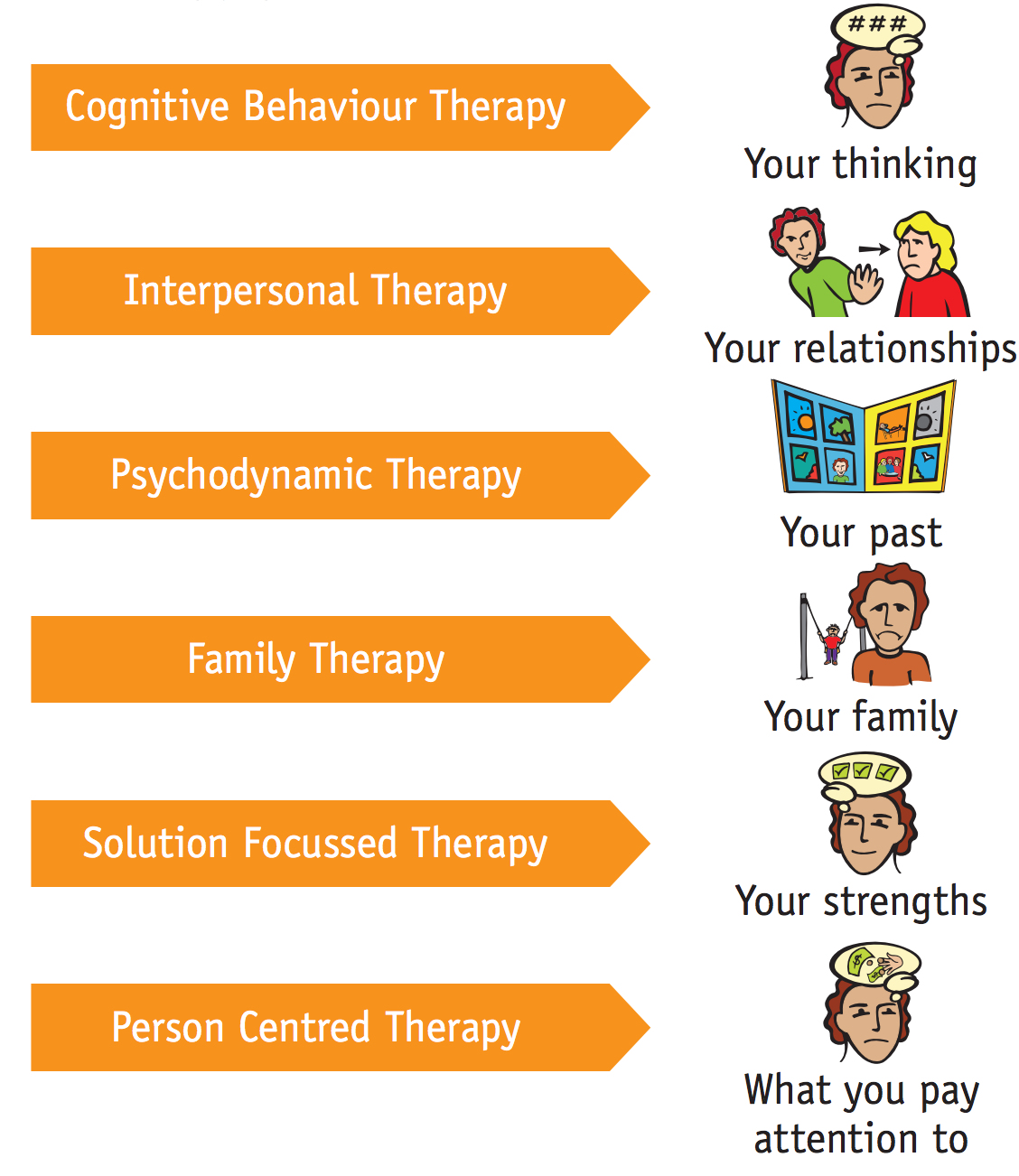Top Advantages Why virtual therapy is Transforming Mental Health Care
A Comprehensive Guide to the Different Types of Therapy and Their Effect
Therapy encompasses a range of healing approaches, each developed to satisfy one-of-a-kind psychological health requirements. From the organized techniques of Cognitive-Behavioral Therapy to the compassionate nature of Person-Centered Treatment, these techniques supply unique pathways to individual growth. Family members therapy and Dialectical Behavior Therapy provide extra frameworks for healing, while group counseling fosters area assistance. Comprehending these diverse approaches can illuminate their extensive influence on private health. What remains to be explored are the ins and outs of each method.

Comprehending Cognitive-Behavioral Therapy (CBT)
Although many healing methods exist, Cognitive-Behavioral Therapy (CBT) sticks out because of its organized, goal-oriented nature. This form of therapy is based upon the facility that ideas, feelings, and habits are adjoined, and by altering negative idea patterns, individuals can change their psychological reactions and actions. CBT employs numerous techniques, such as cognitive restructuring, which aids customers recognize and challenge altered beliefs. Behavior activation urges engagement in pleasurable tasks to fight clinical depression.
Typically, CBT is a temporary therapy, typically lasting in between 12 to 20 sessions, making it easily accessible for those looking for fast results. Its efficiency has been well-documented in dealing with anxiousness conditions, depression, and other mental health and wellness problems. The specialist's role is to direct customers through exercises and research assignments, cultivating self-awareness and advertising lasting coping strategies. This sensible technique equips people to take control of their mental well-being, inevitably bring about boosted life complete satisfaction.
Checking Out Person-Centered Therapy
Person-Centered Treatment, created by Carl Rogers, uses a different approach to Cognitive-Behavioral Therapy by highlighting the client's subjective experience. This restorative design focuses on the individual's point of view, promoting a setting of empathy, genuine favorable respect, and authenticity. By enabling customers to explore their sensations and ideas without judgment, therapists help with personal growth and self-discovery.
The core tenet of Person-Centered Treatment is the belief that individuals possess the integral ability for self-healing and personal development. In this setup, the specialist works as a supportive guide rather than a regulation authority, encouraging clients to organize their very own journey. This technique is especially effective for those coming to grips with concerns such as low self-confidence, anxiousness, or clinical depression, as it empowers them to face and understand their feelings. Ultimately, Person-Centered Treatment grows a solid therapeutic partnership, cultivating trust fund and visibility essential for significant adjustment.
The Function of Household Treatment in Recovery
Family treatment works as a crucial part in the recovery process for people and their connections. This restorative approach concentrates on boosting interaction, resolving problems, and cultivating deeper links among relative. By resolving dysfunctional dynamics, family therapy urges each participant to share their thoughts and feelings in a secure atmosphere, promoting understanding and empathy.

The impact of family members treatment extends beyond the sessions, as boosted relationships can result in improved emotional health for all included. Generally, family treatment plays a crucial duty in recovery by promoting unity, durability, and common support among member of the family, ultimately directing them towards a much healthier, more satisfying life together.
Unboxing Dialectical Behavior Modification (DBT)
Structure on the structure of restorative strategies that boost psychological wellness, Dialectical Behavior modification (DBT) uses a structured structure for people battling with extreme feelings and behavioral challenges. Developed by Marsha Linehan, DBT integrates cognitive-behavioral methods with mindfulness techniques, intending to assist customers take care of overwhelming sensations and enhance social effectiveness.
The treatment you can try these out is particularly helpful for those diagnosed with Borderline Personality Disorder however is additionally applicable to a series of other psychological health concerns. relationship therapy. DBT is composed of specific therapy sessions and abilities training groups, concentrating on 4 essential ability: mindfulness, distress resistance, feeling policy, and interpersonal effectiveness
The Advantages of Team Counselling Sessions
While specific treatment gives useful insights, team counseling sessions offer one-of-a-kind advantages that can substantially improve the restorative experience. One essential benefit is the sense of community that arises amongst participants. People usually find convenience in sharing their experiences with others encountering comparable difficulties, promoting a helpful setting that lowers sensations of isolation.
Group sessions encourage diverse point of views, permitting individuals to learn from each other's coping methods and insights. This cumulative knowledge can bring about boosted analytical abilities and a more comprehensive understanding of individual problems.
Furthermore, group counseling usually advertises accountability, as participants encourage each other to pursue their objectives and follow their commitments. The cost-effectiveness of team therapy makes it an obtainable alternative for numerous individuals seeking support. Overall, the collective nature of team therapy sessions can greatly enrich the therapeutic trip.
Often Asked Concerns
What Certifications Do Therapists Need to Exercise Therapy?
Specialists usually require a relevant level in psychology or therapy, together with monitored scientific experience. In addition, they need to get suitable licensure or qualification to practice legitimately, ensuring adherence to expert requirements and honest standards.
How Do I Choose the Right Sort Of Treatment for Me?
Picking the best kind of treatment involves evaluating individual requirements, checking out numerous approaches, thinking about therapist specializeds, and looking for recommendations. Comprehending private objectives and preferences can significantly boost the performance and complete satisfaction of the restorative experience.

Are Online Therapy Sessions as Effective as In-Person Ones?
The efficiency of on-line therapy sessions compared to in-person ones commonly depends on private preferences and situations. Research shows that both approaches can generate positive end results, though some right here might discover better comfort in face-to-face interactions.
The Length Of Time Does Therapy Usually Last?

What Should I Anticipate During My First Therapy Session?
During the first therapy session, customers can expect an intro, conversation of their issues, facility of objectives, and an overview of the therapy procedure - low cost therapy. This preliminary conference aims to develop rapport and assurance convenience